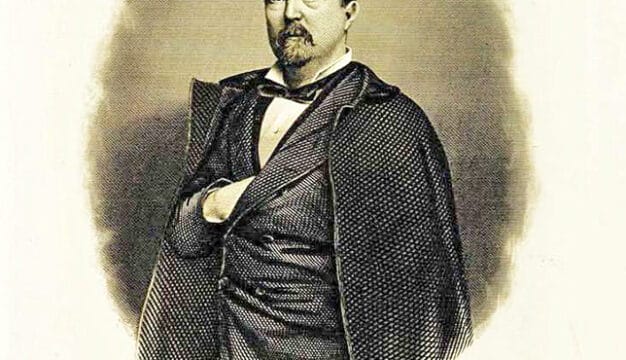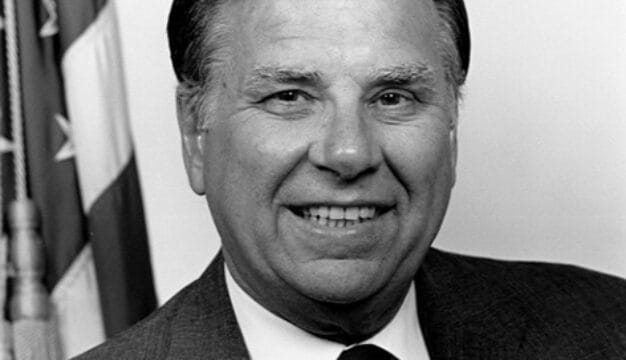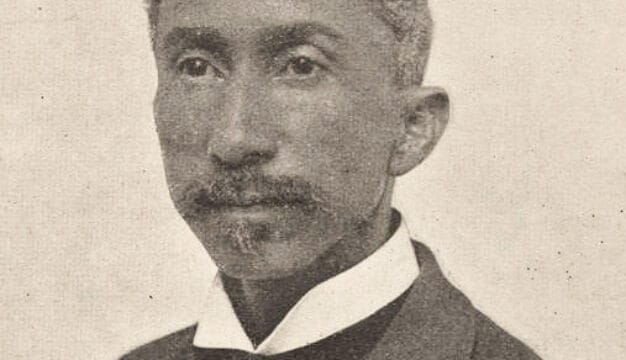Armistead Selden Jr.
Armistead Inge Selden Jr. (1921-1985) was a Democrat who represented Alabama in the U.S. House of Representatives from 1953 to 1969. While in Congress, he was a fiscal and social conservative who opposed government entitlement spending and the civil rights movement and was a strong opponent of Communism and advocate for foreign military aid to U.S. allies. He also served as the U.S. ambassador overseeing collective relations with New Zealand and several other South Pacific nations.
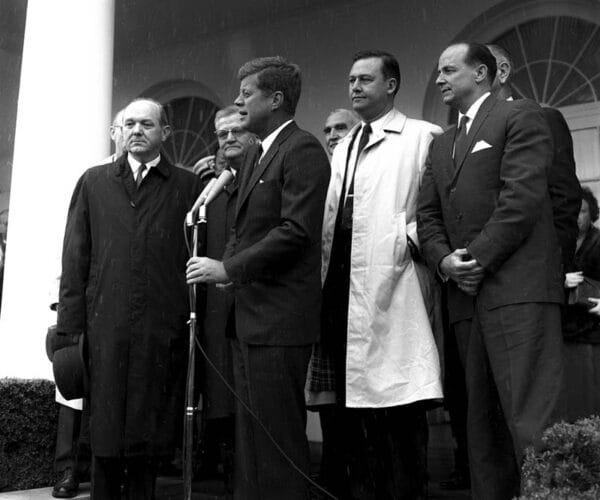 Armistead Selden at White House
Selden was born in Greensboro, Hale County, on February 20, 1921, to Armistead Inge Selden Sr. and Edith Manson Cobbs; he had two siblings. He attended public schools in his hometown and graduated from Greensboro High School in 1938. Selden then attended the University of the South in Sewanee, Tennessee, graduating in 1942 with a bachelor of arts degree. He then received a commission in the U.S. Navy, where he served at sea in the Atlantic theater of operations during World War II. Selden finished his wartime service aboard the destroyer escort USS Baker, first as damage control officer and later executive officer. He was discharged from the active Navy in 1946 at the rank of lieutenant. (Selden continued to serve in the United States Navy Reserve and reached the rank of captain before his retirement in 1981.) He married Mary Jane Wright in 1948, and the couple would have five children.
Armistead Selden at White House
Selden was born in Greensboro, Hale County, on February 20, 1921, to Armistead Inge Selden Sr. and Edith Manson Cobbs; he had two siblings. He attended public schools in his hometown and graduated from Greensboro High School in 1938. Selden then attended the University of the South in Sewanee, Tennessee, graduating in 1942 with a bachelor of arts degree. He then received a commission in the U.S. Navy, where he served at sea in the Atlantic theater of operations during World War II. Selden finished his wartime service aboard the destroyer escort USS Baker, first as damage control officer and later executive officer. He was discharged from the active Navy in 1946 at the rank of lieutenant. (Selden continued to serve in the United States Navy Reserve and reached the rank of captain before his retirement in 1981.) He married Mary Jane Wright in 1948, and the couple would have five children.
After his discharge, Selden entered the University of Alabama School of Law, graduating in 1948. He passed the bar the same year and began a practice in his hometown of Greensboro. Selden did not remain in the legal profession for long, however, as he successfully ran for the Alabama House of Representatives in 1950. After serving there for only one term, Selden was elected to the U.S. House of Representatives in 1952 as a Democrat in Alabama’s Sixth District comprised of Bibb, Greene, Hale, Perry, and Tuscaloosa counties. The 1960 Census resulted in a reduction of Alabama house seats from nine to eight. Instead of adjusting congressional districts, the Alabama legislature passed Act 154 in October 1961 establishing a statewide run-off, with the top congressional seats going to the eight candidates who received the most votes. Selden was re-elected as an at-large representative in 1962 and 1964. After redistricting was approved by the state legislature and federal judges in 1965, Selden served his last two terms from 1965 to 1969 representing the Fifth District.
Selden’s tenure in Congress began during the early years of the Cold War, and he served on the House Foreign Affairs Committee. For 14 years, he chaired its Subcommittee on Inter-American Affairs and travelled often to the region. Selden wrote numerous opinion pieces on the threat of Communism and served as the primary author of several House committee reports warning of Communist expansion in Latin America. In particular, Selden was concerned with the prospect of revolution in nearby Cuba and warned the administrations of both Presidents Dwight D. Eisenhower and John F. Kennedy of potential threats to the United States ahead of Fidel Castro’s victory.
Selden’s record on social issues was in lockstep with the majority of legislators in the South. In 1956, he signed the Declaration of Constitutional Principles, also known as the “Southern Manifesto,” which opposed the Supreme Court ruling calling for the integration of public schools in Brown vs. Board of Education. He also voted against all major civil rights legislation, including the 1957, 1960, 1964, and 1968 Civil Rights Acts and the 1965 Voting Rights Act. Selden frequently joined with the rest of the Alabama delegation in support of maintaining segregation by signing letters to leading political figures, including Kennedy. He also penned a letter to the head of the Mississippi congressional delegation in 1962 offering his support for Mississippi officials who were resisting the federally ordered integration of the University of Mississippi.
Selden broke from the Democratic Party on matters of fiscal policy. Although he supported some legislation aimed to provide limited aid to the poor and voted for increases in federal unemployment assistance, he did not support large-scale government spending programs, particularly those aimed at urban areas, reflecting his rural constituency. He also voted against nearly all permanent increases to the national debt limit. Selden, however, was a leading advocate for federal support in developing navigability on Alabama’s river systems.
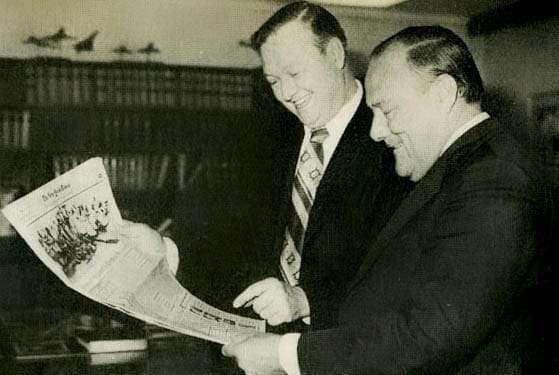 Armistead Selden in New Zealand
Selden left his Sixth District seat in 1968 (it was won by Democrat Walter Flowers) to run for the seat in the Senate left open by the retiring J. Lister Hill but lost in the Democratic primary to James B. Allen. Selden remained in Washington, D.C., to practice law but was appointed by Pres. Richard Nixon in 1970 as the Principal Assistant Secretary of Defense for International Security, serving until 1973. The following year, Nixon appointed Selden as the U.S. Ambassador to New Zealand, Fiji, the Kingdom of Tonga, and Western Samoa. He served until 1979 and then returned to Alabama, where he switched to the Republican Party and ran for the U.S. Senate a second time. He lost again in the primary to eventual winner Jeremiah Denton Jr. Selden returned to Washington, D.C., to serve as president of the American League for Exports and Security Assistance, a defense industry trade group that lobbies for exports of military equipment to foreign governments, from 1981 until his death on November 14, 1985, in Birmingham, Jefferson County. He was buried in Greensboro City Cemetery.
Armistead Selden in New Zealand
Selden left his Sixth District seat in 1968 (it was won by Democrat Walter Flowers) to run for the seat in the Senate left open by the retiring J. Lister Hill but lost in the Democratic primary to James B. Allen. Selden remained in Washington, D.C., to practice law but was appointed by Pres. Richard Nixon in 1970 as the Principal Assistant Secretary of Defense for International Security, serving until 1973. The following year, Nixon appointed Selden as the U.S. Ambassador to New Zealand, Fiji, the Kingdom of Tonga, and Western Samoa. He served until 1979 and then returned to Alabama, where he switched to the Republican Party and ran for the U.S. Senate a second time. He lost again in the primary to eventual winner Jeremiah Denton Jr. Selden returned to Washington, D.C., to serve as president of the American League for Exports and Security Assistance, a defense industry trade group that lobbies for exports of military equipment to foreign governments, from 1981 until his death on November 14, 1985, in Birmingham, Jefferson County. He was buried in Greensboro City Cemetery.
Selden was the recipient of numerous honors, including the Department of Defense Distinguished Civilian Award in 1972 and induction into the Alabama Academy of Honor in 1978. He received the University of the South’s 1983 Distinguished Alumnus Award and in 1975 was awarded an honorary Doctorate of Law from the University of Alabama. In 1985, the Warrior Lock and Dam on northern Alabama’s Warrior River was renamed the A. I. Selden Dam to honor his contributions to inland waterway development in Alabama.
